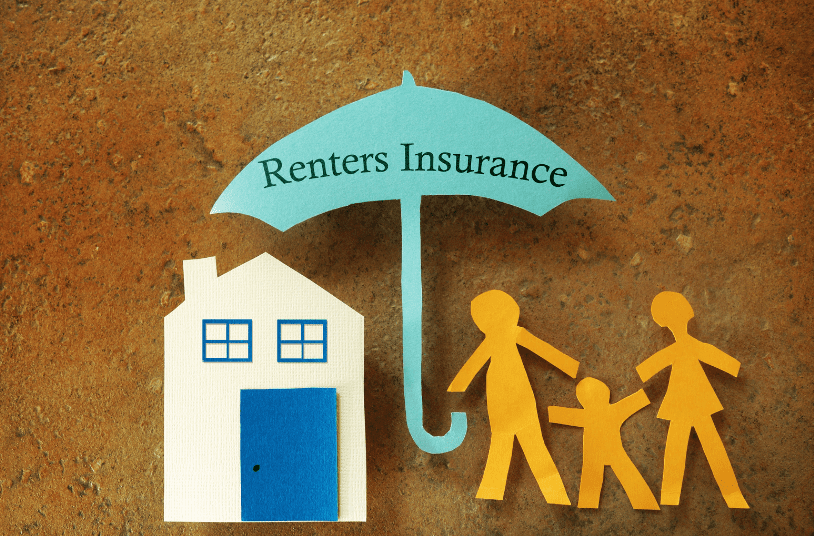Buying renters insurance through the leasing company? Read this first

We’ve run into several situations lately where a customer moves into an apartment complex and buys the renters insurance provided through the complex. I’m all for convenience, but after discussions with other agents, I’ve discovered that these policies may lack some critical coverage items. And as an insurance agent, that’s where I start to have problems.
So, before you buy the renters insurance offered through the leasing company, take a quick read at what these policies may lack (and why that is bad for you) and what questions you should ask to protect yourself.
Many of these policies only cover liability
Years ago, apartment complexes began requiring renters insurance of its tenants for one reason- to protect them from liability due to the actions of the tenant. For example, a tenant who lives on the 3rd floor throws a party and one of the guests falls off the balcony onto the ground. Who’s responsible? The tenant who threw the party. But who will get named in a lawsuit? Both the tenant and the apartment complex (because that’s where it took place). The idea here is for the renters insurance to respond FIRST and pay, with the landlord’s insurance secondary.
Important question to ask: Does this policy ONLY cover liability?
A typical renters insurance policy includes coverage for liability and personal property (AKA your stuff).
The liability coverage is often the lowest amount available
So for most of these renters policies, $100,000 for bodily injury and property damage to others is the lowest amount available. So this is what is offered. However, should you buy a renters policy on your own, you can increase your limit to $300,000 (the minimum we offer on all our policies), $500,000 or perhaps $1 million. And get this: the premium difference is only a very few dollars. I’m talking like $20-30 a year between each level.
So when that balcony accident occurs, how far do you think $100,000 will get you? And keep in mind once the $100,000 is paid by the insurance company, you’re on the hook for the rest.
Important question to ask: Am I able to buy more liability coverage?
Is the liability coverage limited to ONLY your apartment or does it extend elsewhere?
A couple classic examples:
Your dog escapes and runs in front of a car. The car hits it, causing significant damage. If your renters policy is limited to only the apartment, no coverage. A renters policy from the open marketplace- normally there’s coverage to pay for the damages, and any injuries suffered by the car’s driver/occupants.
You’re golfing and hit a ball wide right. It crashes through a window of the house built right next to the course. Again, if your policy from the leasing company limits to only your apartment, you get to pay for the damages out of your pocket. A regular renters policy- again, usually coverage there.
Because, let’s get real- you leave your apartment from time to time and go elsewhere. Wouldn’t it be amazing if your liability insurance could go with you? A typical renters policy specifies the “coverage territory”- which is the geographical area the policy extends to. And it definitely includes a much larger area than your apartment!
Important question to ask: Does the liability ONLY cover me only while I’m at my apartment?
Does the policy include personal property?
It’s never been a landlord’s responsibility to cover your stuff. They don’t care. The policy offered by the apartment complex may not include coverage for any of your personal items in your apartment. So while you think you have this amazing policy, you may not. So if you’re robbed or the apartment catches fire and your stuff is ruined, you’ll be replacing stuff out of your own pocket.
Important question to ask: Does this policy include personal property coverage? If so, how much? And can I increase it?
As mentioned previously, a typical renters policy includes coverage for liability and personal property (AKA your stuff).
When the fire happens, do you have money to live elsewhere?
Renters policies, in my world, include a beautiful coverage called Loss Of Use or Additional Living Expenses. So, when the fire happens (or another covered peril that causes you to relocate), the coverage kicks in and provides money (up to the policy limit) for temporary living accommodations. This could mean a hotel, an apartment elsewhere or even a rental house, depending on the number of people displaced and how long repairs are estimated to take. How awesome is this?
It also provides for extra expenses because you’re not at your regular home- think laundromat, meals out, etc.
How long could you stay on your parents’ or sibling’s couch before they get tired of you? With this coverage, there’s no need to bunk with a relative.
Important question to ask: Does this policy include coverage to pay for accommodations if there’s a claim where I have to relocate elsewhere? (fire in the complex is an example)
PLEASE NOTE that the people working for the apartment complex are NOT insurance agents and will probably be either unable or unwilling to answer the preceding questions.





